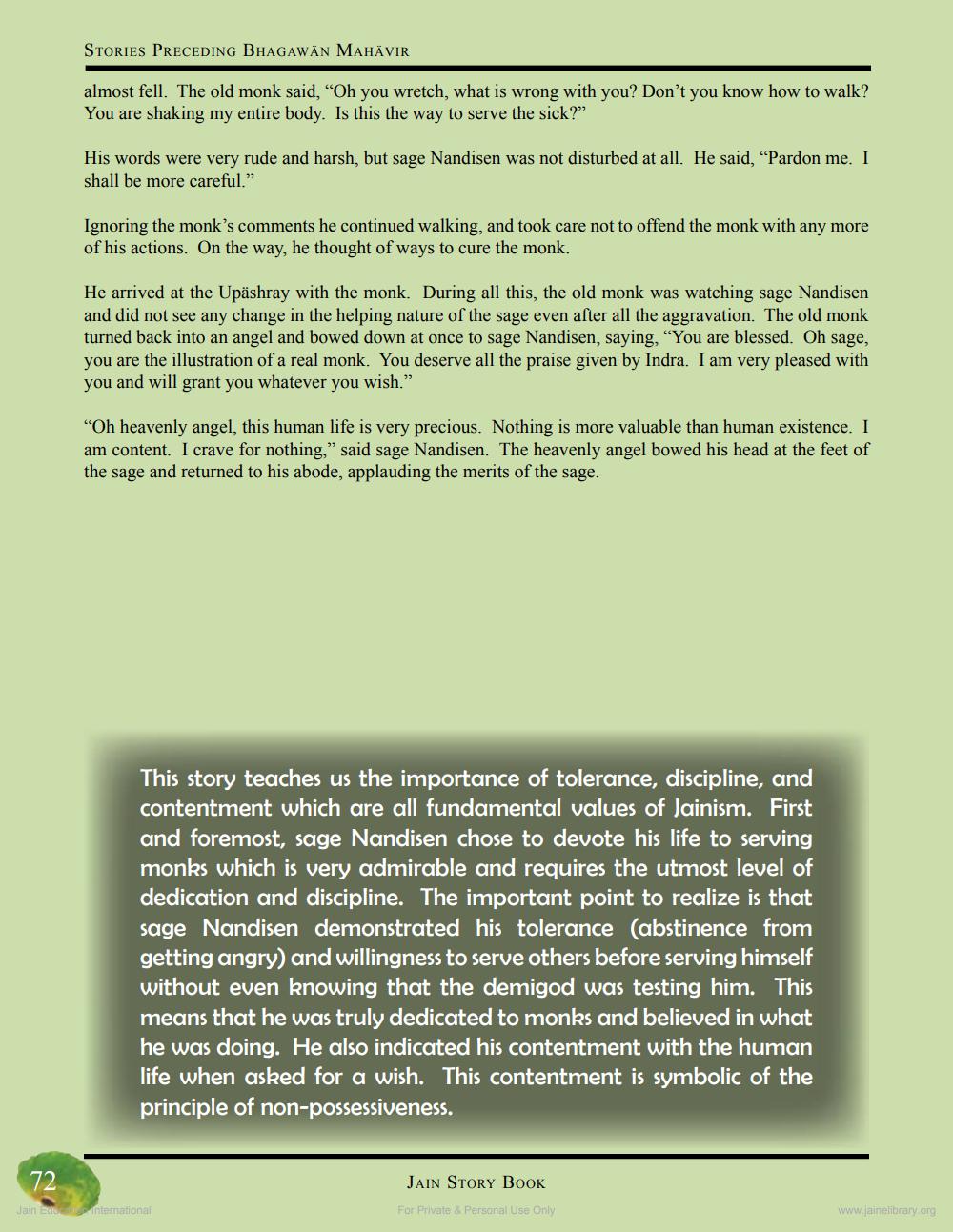Book Title: Sage Nandisen Author(s): JAINA Education Committee Publisher: JAINA Education Committee View full book textPage 3
________________ STORIES PRECEDING BHAGAWAN MAHAVIR almost fell. The old monk said, "Oh you wretch, what is wrong with you? Don't you know how to walk? You are shaking my entire body. Is this the way to serve the sick?" His words were very rude and harsh, but sage Nandisen was not disturbed at all. He said, "Pardon me. I shall be more careful." Ignoring the monk's comments he continued walking, and took care not to offend the monk with any more of his actions. On the way, he thought of ways to cure the monk. He arrived at the Upashray with the monk. During all this, the old monk was watching sage Nandisen and did not see any change in the helping nature of the sage even after all the aggravation. The old monk turned back into an angel and bowed down at once to sage Nandisen, saying, "You are blessed. Oh sage, you are the illustration of a real monk. You deserve all the praise given by Indra. I am very pleased with you and will grant you whatever you wish." "Oh heavenly angel, this human life is very precious. Nothing is more valuable than human existence. I am content. I crave for nothing," said sage Nandisen. The heavenly angel bowed his head at the feet of the sage and returned to his abode, applauding the merits of the sage. This story teaches us the importance of tolerance, discipline, and contentment which are all fundamental values of Jainism. First and foremost, sage Nandisen chose to devote his life to serving monks which is very admirable and requires the utmost level of dedication and discipline. The important point to realize is that sage Nandisen demonstrated his tolerance (abstinence from getting angry) and willingness to serve others before serving himself without even knowing that the demigod was testing him. This means that he was truly dedicated to monks and believed in what he was doing. He also indicated his contentment with the human life when asked for a wish. This contentment is symbolic of the principle of non-possessiveness. 72 Jain STORY BOOK Jain Educap international For Private & Personal Use Only www.jainelibrary.orgPage Navigation
1 2 3
